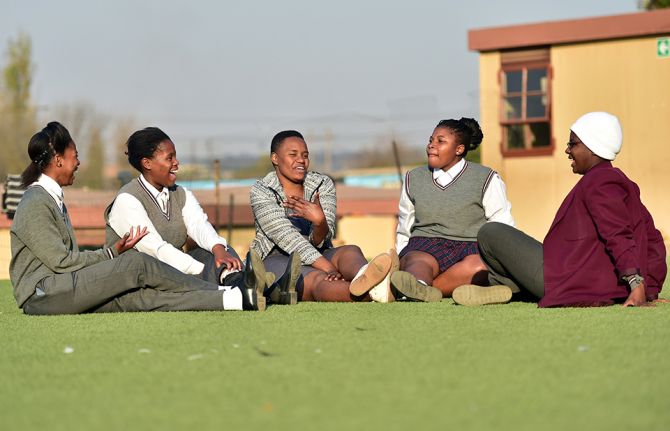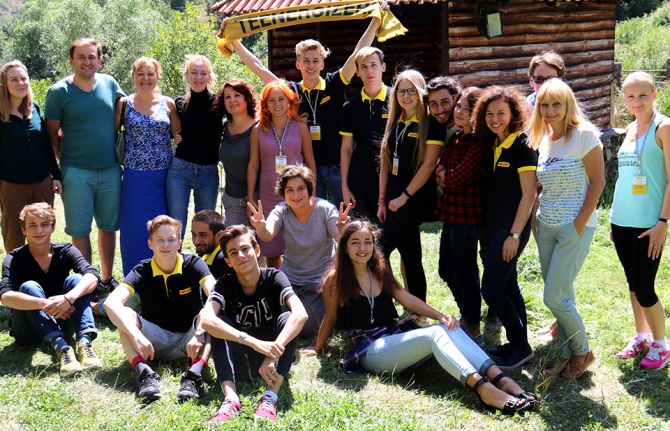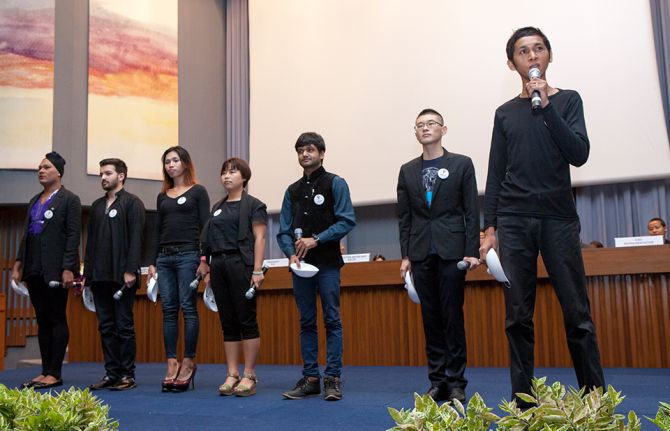



Feature Story
Youth networks are saving lives
10 July 2019
10 July 2019 10 July 2019A study undertaken by Watipa and commissioned by UNAIDS and the PACT as part of its #uproot agenda found that young people play an essential role in demand creation, linkages to care and uptake of services for HIV and sexual and reproductive health and rights.
The report showcasing the results, titled Young people’s participation in community-based responses to HIV: from passive beneficiaries to active agents of change, showed that young people, particularly role models and leaders who are living with HIV, play a critical part in enabling access to HIV treatment and retention in care. The results showed that the support provided by young people to their peers has a positive effect on antiretroviral therapy adherence, navigating disclosure and living positively with HIV. Details of the types of support show that young people are actively involved in peer psychosocial support, peer-to-peer consultations, policy engagement processes, peer mobilization around specific campaigns and projects, and peer-supported hospital and care access.
Young people, including young key populations and young people living with HIV, also play a key role in primary HIV prevention, early testing and diagnosis. Peer education, outreach and community engagement are all areas where young people are informing and influencing their peers. In some examples, young people working as peer supporters and volunteers provided HIV testing and counselling services, distributed condoms or worked alongside community-based health assistants.
62% of surveyed individuals who were members of a youth organization in the HIV response indicated that they themselves provide HIV services directly to young people. These were services designed to benefit and reach young people as the focus groups. The provided services include information about sexual and reproductive health and rights (51%), peer support (50%), psychosocial support (42%), condom promotion and distribution (41%), antiretroviral therapy adherence support (32%) and HIV counselling and testing (30%). Many of the organizations surveyed offered integrated services, including referrals, prevention, and testing and treatment of other sexually transmitted infections (STIs) (38%), tuberculosis (28%) and/or hepatitis B and C (22%).
As one key informant mentioned, “It’s easy to disseminate the knowledge among ourselves, because if [I] am part of it, then it’s easier to talk to somebody of my age about it.”
The primary data was collected through three methods: 1) an online quantitative survey with 32 questions that was offered in five languages (Arabic, English, French, Russian and Spanish), peer interviews, which were semi-structured qualitative interviews conducted by young people in either English or their local language in six different countries, and key informant interviews, which were semi-structured qualitative interviews conducted in English via Skype by two young consultants leading the research team. The total number of participants was 143, between the ages of 20 and 29.
The role of young people in community-based responses to HIV is vital to achieve and sustain positive health outcomes in the context of HIV. One key informant said that “Young people living with HIV are changing the game in the community. They are peer educators, mentors . . . they support other young people at health facilities to direct them about services to make the process swifter for them while receiving services. Many young people are involved in advocacy where they speak for the voices of [the] young.”
However, the lack of appropriate or proportional remuneration for the role of young people in demand creation and enabling linkages to care seems to be a critical barrier to the sustained, effective and meaningful involvement of young people. Other barriers inhibiting their participation included a lack of funding for institutional support, a lack of capacity or support for the knowledge necessary to participate fully in technical discussions, and a lack of tailored tools and resources to support participation in different processes and mechanisms.
The study also provides thirteen recommendations from the young people who participated in the research, and are aimed at government authorities, United Nations entities, donors, civil society organizations and other stakeholders in the HIV response. These recommendations include the need to involve young people in design, planning and delivery of HIV policies, programmes and services as well as recognize the essential role that young people have in implementing service delivery to their peers.
Related
 “Who will protect our young people?”
“Who will protect our young people?”

02 June 2025


